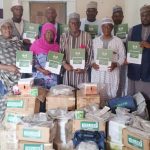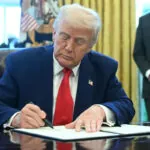The Federal Government has allocated $570 million to states as grants to strengthen healthcare delivery across the country as part of a larger $1.57 billion financing package secured from the World Bank to support Nigeria’s healthcare sector.
The Governance Coordination and Subnational Engagement Lead at the SWAp Coordination Office, Dr Ashiru Adamu Abubakar, disclosed this while speaking to the media at the National Health Sector Renewal Investment Initiative (NHSRII) Health System Strengthening Workshop in Abuja.
He explained that the grants are intended to incentivise states to improve their healthcare services, particularly in the area of primary healthcare provision. By providing financial support to states, the Federal Government aims to enhance the quality and accessibility of healthcare services for citizens.
He said, “This year, the Honourable Coordinating Minister directed that we assemble and develop a plan that will see to the strengthening of capacities of individual programme managers across all levels in terms of their leadership capacity and health system strengthening capacity, so they can understand the issues and plan well.”
The plan, according to Dr Ashiru, will inform the budget, and this year’s annual operational plan is crucial. “We have a central theme for it: to have a rational, realistic, pragmatic, and comprehensive plan that aligns with the health budget.”
Ashiru explained that the government is working with states to identify top programme officers and managers to build their capacity.
“We’ve worked with the states to identify their top three programme officers and managers that we will build their capacity, and those three will go back and cascade this training into an army of programme managers in the states—between 40 to 80, depending on the state.”
He added that the goal is to reach no fewer than 25,000 programme officers and managers across the country, who will serve as change agents.
“The Nigeria Governors’ Forum Secretariat says that these three individuals we are bringing are the seeds of hope that we have for the health sector of Nigeria because if they get this right and transfer it right, it translates into a lot of efficiency gains and improvement in health outcomes for Nigerians.”
Dr Ashiru noted that the government is working closely with all states and development partners to ensure the success of the initiative. “In this journey, we are working very closely with all the states and our development partners to make sure that we get it right.”
The government is also addressing issues of timing, partner inclusion, and complexity. “There are also issues of timing. Last year, as of June, only 22 states in Nigeria had their annual operational plans. This year, we are starting two months earlier to make sure that we finish the process, and that process informs the health budget across all levels.”
Ashiru emphasised that the reform agenda is designed to respond to the needs of Nigerians. “As for Nigerians, what we are really saying at the centre of the reform agenda and the blueprint is that we are making sure that our plans are responsive to the needs of Nigerians.”
The incentives, according to Dr Ashiru, will focus on revitalising primary healthcare facilities, increasing health insurance coverage, and ensuring access to essential medications.
“It’s all about making sure 2,000 primary healthcare facilities are revitalised to provide full services, including basic emergency obstetric care. It’s ensuring the facilities have a full complement of essential medications. It’s ensuring we increase health insurance coverage.”
Ashiru stated that the plan for 2026 is for Nigerians to start feeling the benefits of the reform agenda. “So the plan for 2026 is for Nigerians to start feeling the benefits of this reform that His Excellency the President is driving.”
Also speaking, the Deputy Director seconded from the National Health Insurance Authority (NHIA), Omoruyi Iyahen, explained that the SWAp initiative is a collaborative approach aimed at coordinating and strengthening the health system.
“SWAp is developed to help coordinate and strengthen the health system. The idea is that people should wake up. The Minister believes this is for everybody. It’s not about one person or party; it’s about the health system.”
Iyahen highlighted the Minister’s efforts to mobilise funds and drive innovation in the health sector. “The Minister has been able to mobilise a lot of funds. And we can see there’s even the Blind Care… A lot of primary healthcare centres are ready,” he said.
He praised the Minister’s approach, saying it was a “game changer” that brought different stakeholders together. “I think the Minister is very deliberate in his efforts to make sure all systems work together and in synergy,” Iyahen said.
The Deputy Director emphasised the importance of training health workers, saying it was crucial to addressing healthcare challenges. “Without training health workers, we’ll be left with native doctors to take care of our people,” he said.
Iyahen expressed optimism that the SWAp initiative would yield remarkable results by 2027, thanks to the Minister’s efforts. “He believes that by 2027, we can see a remarkable difference in the health space, primary health,” he said.
ALSO READ TOP STORIES FROM NIGERIAN TRIBUNE
WATCH TOP VIDEOS FROM NIGERIAN TRIBUNE TV
- Relationship Hangout: Public vs Private Proposals – Which Truly Wins in Love?
- “No” Is a Complete Sentence: Why You Should Stop Feeling Guilty
- Relationship Hangout: Friendship Talk 2025 – How to Be a Good Friend & Big Questions on Friendship
- Police Overpower Armed Robbers in Ibadan After Fierce Struggle






